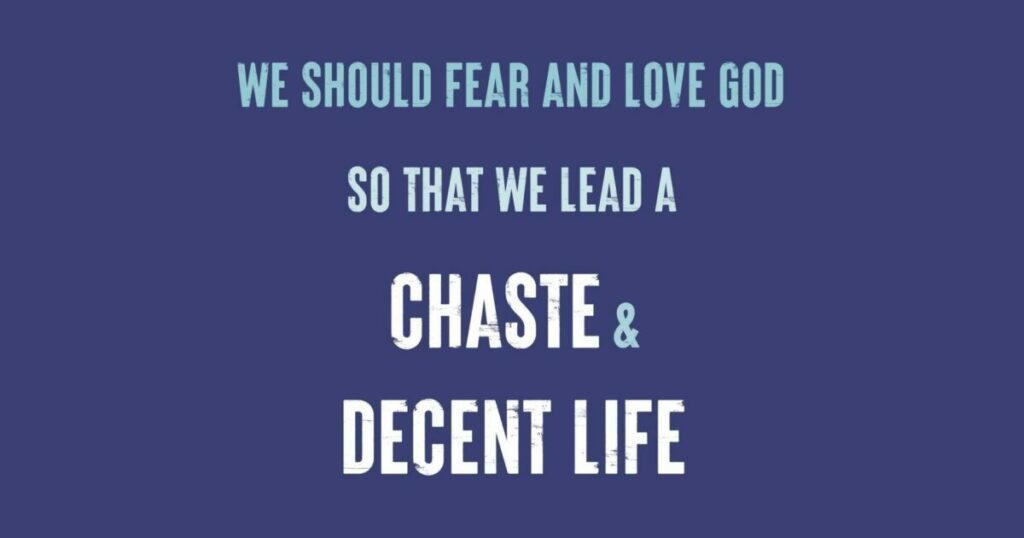Victims and heroes. You can hear the laments of victims on the airwaves crying out for justice. You can also see the heroes on television patting themselves on the back for all their hard work. Popular media encourages us to see ourselves in one of these two categories, as either a victim or a hero.
There are certainly people in our world who have been victimized. They have been oppressed, beaten, raped and mugged; in other words, sinned against. There are also heroes, people who have made sacrifices for the greater good and worked hard to earn what they have. This article, however, is concerned with these two mindsets. What are the traps of victim and hero mentalities, and how do we avoid them?
Imagine a spectrum that represents a human being’s attitude toward life. On one far end you have a total victim mentality. On the other extreme you have a total hero mentality. Depending upon our personal circumstances, we tend to slide to one end of that spectrum or the other.
Everyone else’s fault
A man in the victim mentality views himself as the passive recipient of the aggression, oppression and ill intent of other men. Things happen to him. Others act upon him. He, however, is not responsible for his circumstances. He tends to think: “Woe is me.”
In the victim mentality, a man labels others as oppressors, bullies, dictators, abusers or jerks. Perhaps in certain instances these labels are well-deserved. Labels, though, allow him to dehumanize others, to cast them as the villains in his story.
He is then free to ignore his own sinful contribution to the problem. Is there conflict at work? “Things would be great if the office wasn’t filled with jerks!” Is there marital tension? “Life would be wonderful if my wife were not such a nag.” He bears no responsibility — or, at least, very little. If he cannot blame another individual person, he will broaden out the blame to groups or organizations: the government, big pharma, immigrants, corporations, the rich, the aliens. Like Adam standing naked before God in the Garden of Eden, he shifts the blame: “The man [Adam] said, ‘The woman whom you gave to be with me, she gave me fruit of the tree, and I ate’” (Gen. 3:12).
Consider a different biblical example:
Now Naboth the Jezreelite had a vineyard in Jezreel, beside the palace of Ahab king of Samaria. And after this Ahab said to Naboth, “Give me your vineyard, that I may have it for a vegetable garden, because it is near my house, and I will give you a better vineyard for it; or, if it seems good to you, I will give you its value in money.” But Naboth said to Ahab, “The LORD forbid that I should give you the inheritance of my fathers.” And Ahab went into his house vexed and sullen because of what Naboth the Jezreelite had said to him, for he had said, “I will not give you the inheritance of my fathers.” And he lay down on his bed and turned away his face and would eat no food.
But Jezebel his wife came to him and said to him, “Why is your spirit so vexed that you eat no food?” And he said to her, “Because I spoke to Naboth the Jezreelite and said to him, ‘Give me your vineyard for money, or else, if it please you, I will give you another vineyard for it.’ And he answered, ‘I will not give you my vineyard.’”
1 Kings 21:1–6
Naboth has good reason to keep his land. It belonged to his father and has been with his family for generations; furthermore, Levitical law forbade the selling of ancestral lands in perpetuity (Lev. 25:23–34). Ahab, however, goes home and sulks; someone else is preventing him from getting what he wants. The story continues as Queen Jezebel frames Naboth for blasphemy and has him stoned to death, thus freeing the vineyard for King Ahab to enjoy.
Neither Ahab nor Jezebel respect the command of God concerning property. Ahab cannot see his own greed and selfish desire. He can only see what he wants and the “villain” who stood in his way. He thinks he is a victim of others.
A victim mentality brings great harm to the Christian; it strangles our ability to repent of our own sins and to forgive the sins of others. We can see clearly what everyone else has done wrong, but not what we have done wrong. Since others are at fault, we do not need to show them grace.
Hero of my own story
The hero mentality, at the opposite end of the spectrum, brings other stumbling blocks. When a man thinks this way, he sees himself as the active achiever of all that is good. Who is responsible for his success? He is. How did he get to where he is? Hard work. Heroes achieve success; it does not just happen to them.
A man who slides down to the hero end of the spectrum also labels others. He calls them couch potatoes, lazy or undeserving. Why can’t others reach the same heights that he has? They just aren’t willing to work for it, of course. They are not smart enough or strong enough.
While the victim mentality is rarely praised, the hero mentality comes straight out of the heroes of ancient myth. C. S. Lewis points out, “Homer’s Achilles knows nothing of the demand that the brave should also be the modest and the merciful. He kills men as they cry for quarter or takes them prisoner to kill them at leisure” (C.S. Lewis, “The Necessity of Chivalry,” in Present Concerns, [Harper One, 1986], 2–3). The ancient world expected a hero to revel in his victories and rub others’ faces in it.
The man stuck in the hero mentality fails to see his success as a gift of God. Not seeing the grace of God active in his own life, he does not see a need to offer grace and compassion to others who have not had the same victories in life.
The hero mentality leads to destruction. Consider this passage from Acts:
Now Herod was angry with the people of Tyre and Sidon, and they came to him with one accord, and having persuaded Blastus, the king’s chamberlain, they asked for peace, because their country depended on the king’s country for food. On an appointed day Herod put on his royal robes, took his seat upon the throne, and delivered an oration to them. And the people were shouting, “The voice of a god, and not of a man!” Immediately an angel of the Lord struck him down, because he did not give God the glory, and he was eaten by worms and breathed his last.
Acts 12:20–23
Herod was consumed by the hero mentality. Whether he believed the shouts of the people or not, he allowed them to call him a god. That is blasphemy. God sent His angel to humble Herod with a painful death.
Our victim and hero
Christians see the world with different eyes. We do not merely look at the world around us with the lens of culture, media or other popular influences. We look to Christ, and that dramatically changes the way we view life in God’s creation. We see ourselves and others, not in terms of victimhood or heroism, but repentance, humility and compassion.
Only Jesus Christ was a truly innocent victim. He alone suffered unjustly, without sin, at the hands of His enemies. And it was our sin that necessitated His brutal death.
Remembering this helps us to avoid applying dehumanizing labels and instead see one another as sinners — a label that we all share. We can take the plank out of our own eye (Matt. 7:5) and be ready to forgive not “seven times, but seventy-seven times” (Matt. 18:22).
Likewise, Jesus Christ is the only true hero who deserved to be elevated and exalted. “Therefore God has highly exalted him and bestowed on him the name that is above every name, so that at the name of Jesus every knee should bow, in heaven and on earth and under the earth, and every tongue confess that Jesus Christ is Lord, to the glory of God the Father” (Phil. 2:9–11).
Knowing Jesus is exalted, we are humbled. We repent of our arrogance and acknowledge that all good things are gifts of God’s fatherly provision. Martin Luther says as much in the Small Catechism: “All this [God’s daily provision and protection] He does out of fatherly, divine goodness and mercy, without any merit or worthiness in me. For all this it is my duty to thank and praise, serve and obey Him.”
If we have succeeded in life, it is because we have a loving Father in heaven. Seeing everything as an undeserved gift from God, we are then moved to have, not contempt, but compassion for the poor, distressed and weak.
As Christians we do not think like victims or heroes. Rather, we are unworthy servants, merely doing our duty (Luke 17:10). We are sinners living among other sinners, all who need God’s grace, all who must repent and be forgiven.






“Self” is a very demanding god, always looking for advantage, full of deception, and fully prepared to justify sin and unrighteousness. “Self” often wears an outward appearance of humility, can be narcissistic while claiming to be the victim, will secretly resent the success of others, and resides to some degree in the hearts of all of the sons and daughters of Adam. “Self” is tireless in trying to nudge Jesus off the throne of human life. “Self” will always seek its own way, and only the Holy Spirit can keep it in check during the life of the struggling, hard pressed, devout believer. To keep “Self” from sitting on the throne of our lives, we need the word of God and prayer. A good verse to always acknowledge is John 3:30, “He must increase, but I must decrease.” Soli Deo Gloria.